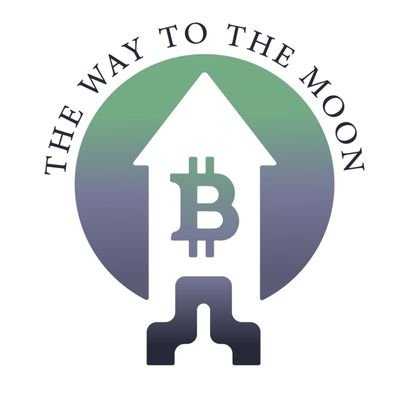
Crypto News Flash
2025/05/05 10:15
Dubai’s $8.8 Billion Bet to Make Maldives a Blockchain Paradise
MBS Global Investments, a Dubai-based family office that manages the assets of Sheikh Nayef bin Eid Al Thani, has officially announced a massive $8.8 billion investment plan to develop a blockchain-based financial center and digital assets in the Maldives, according to Financial Times .
Covering an area of over 830,000 square meters, the Maldives International Financial Center (MIFC) will be constructed in the center of the capital city of Malé.
Imagine if a small Indian Ocean country generally associated with beaches and luxury resorts suddenly became home to 6,500 digital finance sector employees. MIFC is also anticipated to generate as many as 16,000 new employment. Strangely, the investment amount surpasses the yearly Gross Domestic Product of about $7 billion for the Maldives.
Moreover, MIFC is meant to be a corporate tax-free zone and does not mandate business individuals to hold resident status to run. The major goal is obvious: to draw digital nomads who have recently been more seeking comfortable, technology-friendly and low-tax locations, global financial institutions, and fintech enterprises.
On the other hand, this ambitious project runs parallel to Dubai’s drive to become a worldwide crypto center. Duba held the Token2049 event—a significant crypto conference with about 15,000 attendees from 160 countries—from April 30 to May 1, 2025. An expo blending technology and a luxury lifestyle, renowned DJs, and a Lamborghini procession were all there.
However, Dubai is not just stopping at showing off. CNF previously reported that Trump Tower Dubai is now accepting crypto payments for condominium purchases. The Trump family is even reported to be developing a new exchange platform and a number of other crypto events. It is clear that the signal to blend property and blockchain is getting brighter.
Meanwhile, Dubai’s Virtual Asset Regulatory Authority (VARA) recently issued a regulation requiring disclosure of the identities of whales—aka large token holders. They want to reduce the potential for market manipulation. But the challenge is how to monitor transactions that are essentially pseudonymous.
Interestingly, global flows are actually shifting to the United States. Several crypto companies, such as Deribit from Dubai, OKX from the Seychelles, and Nexo from Bulgaria, are considering opening offices in the US, following the relaxation of regulations under the Trump administration.
Although this might be a direct rival to the MIFC proposal, this trend shows that places like Dubai and the Maldives are vying for position on the world crypto map.
For the Maldives, which is under pressure to pay off foreign loans of $600–$700 million this year and around $1 billion by 2026, the MIFC project is also a motivating event. The local government greets the initiative as a fresh kind of corporate cooperation not to load the nation like traditional loan practices.

Crypto-Ticker
2025/04/30 20:35
Trump Brings Bitcoin to Dubai? Tower Deal Shakes Up the Middle East
In a bold and unexpected move, the Trump Organization has officially launched the Trump International Hotel & Tower in Dubai, an 80-floor luxury project located on Sheikh Zayed Road. But what truly caught global attention wasn’t the opulence or penthouses priced at $20 million—it was Eric Trump’s announcement that the property would accept cryptocurrency payments, including Bitcoin .
This moment is more than just a marketing stunt. It marks a pivotal shift for the role of crypto in high-value real estate transactions in the Middle East .
The Trump name carries massive global recognition. Having it associated with Bitcoin transactions in a luxury Dubai development sends a strong signal: cryptocurrencies are moving into elite territory. This will likely build trust among traditional investors and encourage institutional interest in digital assets.
The UAE—and especially Dubai—has already laid the groundwork for digital asset innovation. With frameworks like VARA and the establishment of a regulatory-friendly climate, this development aligns perfectly with Dubai’s ambition to become a global crypto and Web3 hub .
Trump Tower’s embrace of crypto may now act as a benchmark for other developers seeking to attract international, tech-savvy investors.
The Trump Tower development bridges the gap between the digital and physical asset worlds by accepting Bitcoin for property purchases. It proves that crypto isn’t just for speculation—it can now secure tangible, multimillion-dollar assets in one of the world’s most luxurious cities.
Expect similar announcements from developers across the Gulf.
Crypto payments at this scale demand proper infrastructure—compliant payment gateways, crypto-fiat conversion, KYC/AML protocols, and more. That means banks, regulators, and fintechs in the Middle East will have to adapt quickly, pushing forward a new era of financial innovation.
With Dubai taking the lead, neighbouring countries like Qatar, Saudi Arabia, and Bahrain may follow. Policymakers may see this as an opportunity to attract global crypto wealth, setting off a wave of crypto-friendly legislation and investments across the Gulf.
This isn't just about a tower. It's about what the Trump brand represents in the context of Dubai’s luxury scene—and what Bitcoin means to modern investors. The convergence of these two worlds is sending a clear message:
Crypto is no longer just digital speculation. It’s now brick, mortar, and luxury living.
In a bold and unexpected move, the Trump Organization has officially launched the Trump International Hotel & Tower in Dubai, an 80-floor luxury project located on Sheikh Zayed Road. But what truly caught global attention wasn’t the opulence or penthouses priced at $20 million—it was Eric Trump’s announcement that the property would accept cryptocurrency payments, including Bitcoin .
This moment is more than just a marketing stunt. It marks a pivotal shift for the role of crypto in high-value real estate transactions in the Middle East .
The Trump name carries massive global recognition. Having it associated with Bitcoin transactions in a luxury Dubai development sends a strong signal: cryptocurrencies are moving into elite territory. This will likely build trust among traditional investors and encourage institutional interest in digital assets.
The UAE—and especially Dubai—has already laid the groundwork for digital asset innovation. With frameworks like VARA and the establishment of a regulatory-friendly climate, this development aligns perfectly with Dubai’s ambition to become a global crypto and Web3 hub .
Trump Tower’s embrace of crypto may now act as a benchmark for other developers seeking to attract international, tech-savvy investors.
The Trump Tower development bridges the gap between the digital and physical asset worlds by accepting Bitcoin for property purchases. It proves that crypto isn’t just for speculation—it can now secure tangible, multimillion-dollar assets in one of the world’s most luxurious cities.
Expect similar announcements from developers across the Gulf.
Crypto payments at this scale demand proper infrastructure—compliant payment gateways, crypto-fiat conversion, KYC/AML protocols, and more. That means banks, regulators, and fintechs in the Middle East will have to adapt quickly, pushing forward a new era of financial innovation.
With Dubai taking the lead, neighbouring countries like Qatar, Saudi Arabia, and Bahrain may follow. Policymakers may see this as an opportunity to attract global crypto wealth, setting off a wave of crypto-friendly legislation and investments across the Gulf.
This isn't just about a tower. It's about what the Trump brand represents in the context of Dubai’s luxury scene—and what Bitcoin means to modern investors. The convergence of these two worlds is sending a clear message:
Crypto is no longer just digital speculation. It’s now brick, mortar, and luxury living.



 最低価格
最低価格 最高価格
最高価格 















